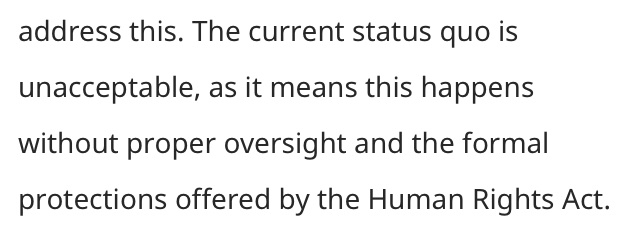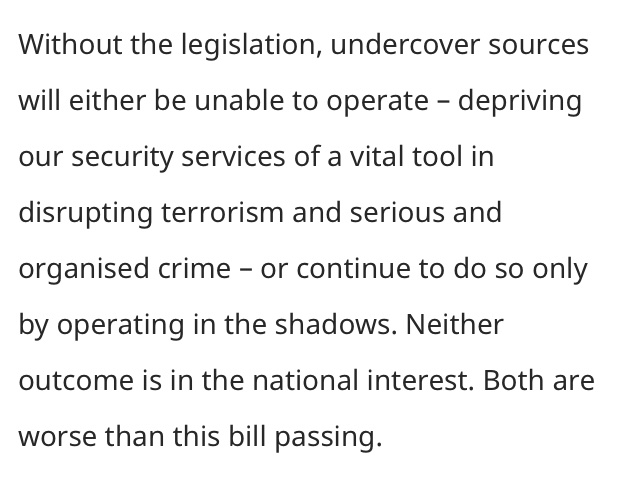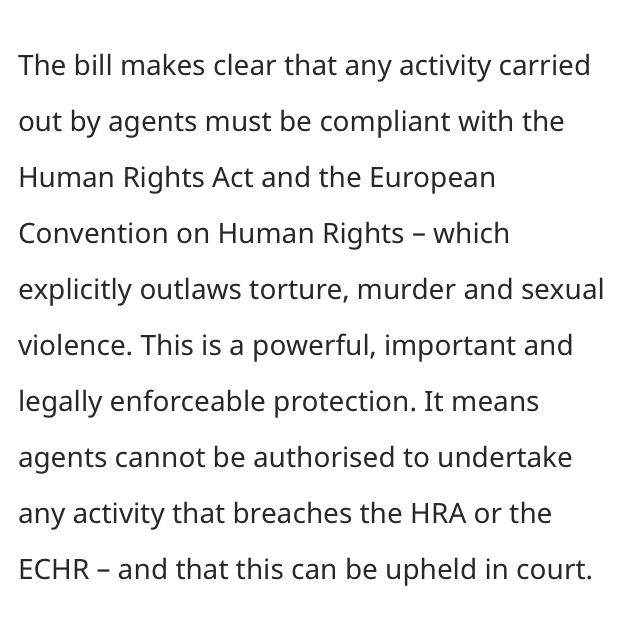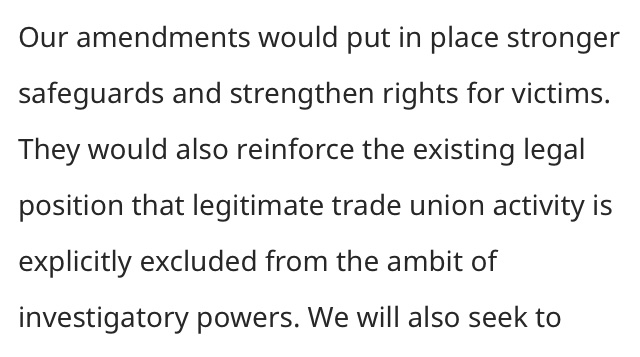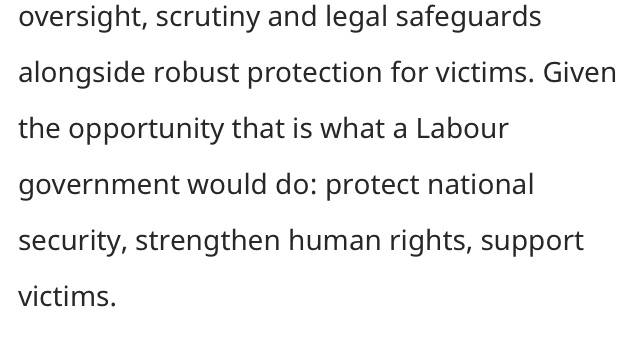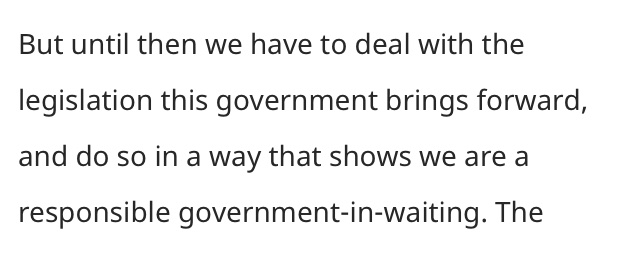Seems reasonable to assume that if @uklabour’s stated reasons for supporting the CHIS (“Spycops”) Bill are as evasive as this piece by @ConorMcGinn (shadow security minister), either they’ve got no proper reasons or don’t want to admit what they are > https://labourlist.org/2020/10/voting-down-the-chis-bill-would-weaken-national-security-and-human-rights/?amp&__twitter_impression=true">https://labourlist.org/2020/10/v...
Ok, so starting with this, the behaviour of the security services is already subject to the Human Rights Act, as are all actions by public authorities. The CHIS Bill won’t affect that at all. >
Does this mean undercover sources will cease to be in the shadows? If so, they’re not really undercover, are they? Is that really what the CHIS Bill is trying to achieve? What does Conor McGinn even think he means by this?
How does this fit with claims (not made here) that if agents aren’t able to commit offences they might be “tested” by terrorists or criminals trying to force them to do so? Won’t they just try to make agents do things against the HRA, eg torture, to get them to reveal themselves?
This obvs concedes that the CHIS Bill, unamended, can be used against legitimate trade union activity or to undermine campaigns against injustice, in which case why is it ok to support it even if unamended? If that’s the price you think worth paying, say so and explain why.
How will the CHIS Bill “strengthen” human rights? All @ConorMcGinn’s article does is claim (dubiously) that it won’t undermine them. But how does it actively strengthen them, and if it won’t, why say so?
And if intention is to protect national security, why no mention of the v wide range of agencies & activities covered, some far removed from nat security, eg Food Standards Agency or Border Force? These points are at the heart of opposition to the CHIS Bill, why not address them?
This gets to the heart of it: “responsible govt-in-waiting” is conceived as one which cringes towards Conservative priorities & stands for increasing the powers of agencies which have repeatedly shown themselves irresponsible in use of power. Embarrassing.
Well yes... https://twitter.com/pmillerinfo/status/1316774189811093505?s=20">https://twitter.com/pmillerin...

 Read on Twitter
Read on Twitter